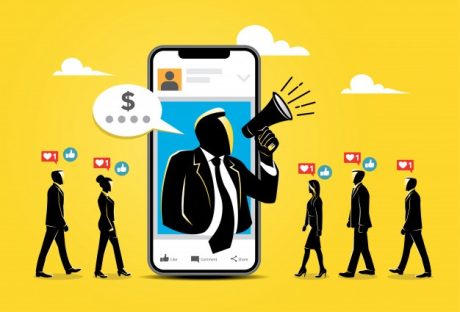Are you thinking of starting your own business and become an entrepreneur? Are you looking for inspiration? Do you wonder how famous lifestyle entrepreneur started their journey?
Following their passion and making it your profession will never be outdated. When you love what you do, or you do what you love, it will offer you more opportunities to be successful.
Here, we will talk about 10 names who think the same way you think of being the boss of your own. The list of the top 10 entrepreneurs of all time is here. And they are on this list.
10 Best Lifestyle Entrepreneurs Of All Time

Here is a list of the 10 best lifestyle entrepreneurs of all-time in 2024. This list includes all the names that are more than enough to inspire you to start your journey.
1. Tim Ferriss
Do you want to know the name behind lifestyle entrepreneurship? Tim Ferris is the person who has brought the concept of this into the mainstream. And the popularity of his book The Four-Hour Workweek has worked as the fuel to this journey. It is a must-read for those who also want to be lifestyle entrepreneurs. As the book is all about the concept of lifestyle entrepreneurship, it will be a perfect guide for you. After the book, he continues to write books, blogs, and runs a globally known podcast, and uses his diverse income for living a lifestyle or travel and freedom.
2. Michelle Schroeder-Gardner
Michelle Schroeder is a personal finance blogger. By driving traffic to her blog from Pinterest, she became a successful lifestyle entrepreneur. Recently, focusing on SEO along with other traffic sources, she has diversified her traffic. With the growth of her business, Michelle also diversifies the ways of her blogs.
3. Johnny FD
Apart from being a digital nomad, Johny FD is a great lifestyle entrepreneur. In order to make money, Johny only needs internet and a laptop. He loves taking advantage of this and travel around the world. Though Asis is on his priority living. Due to the lower cost of living in parts of Asia than the USA, he chooses to live here while earning in USD. This thing is common among many lifestyle entrepreneurs. This way, Johny FD saves a large portion of his income.
4. Jasmine Alley
Jasmine Alley is an Instagram influencer. Through several brand collaborations, this Instagrammer managed to make a living as a travel influencer. Her primary current source of income is those Instagram brand collaborations. After leaving her job, Jasmine spent two years developing her travel brand. And now she gets to explore beautiful places along with complimentary stays in luxurious hotels. She actually used to make more money from her job than she is currently making. But she prioritized her independent, fun, full, and luxurious travel life.
5. Pat Flynn
Pat Flynn started blogging much before it became cool. He was ahead of most people who did not have any idea that one could actually make money from blogging. Currently, he is running smartpassiveincome.com, which is an empire of content production. He started his business just to prioritize time with his family. These are some of the common motivations for most lifestyle entrepreneurs. From his blog, he makes more than millions on a yearly basis.
6. Melyssa Griffin
As a graphic designer, Melyssa Griffin felt burned out while selling services. When she started selling products instead of selling services, she experienced huge success. She started selling online and started riding the stairs in popularity of online courses. This has brought massive success to her. Melyssa does not publish her income report anymore, but as per the report of December 2016, she has managed to make a profit of around $200,000 in that particular month alone.
7. Brian Dean
The initial story of Brian Dean is pretty much similar to Melyssa Griffin’s, and that is, he also started by selling services. But later on, he realized that in order to live the life he had been dreaming of, he needed to sell products. At present, he is running Backlinko, which is an SEO blog that is highly successful. He sells online courses as well, like Melyssa. If you want to know more about him, you can read the article on Forbes.
8. Shelby Church
Being a west coast based vlogger and Youtuber, Shelby is another example of an aspiring lifestyle entrepreneur. She does not make millions only from her lifestyle business, unlike other entrepreneurs on this list. In her 2019 income recap Youtube video, she unveiled that her channel managed to earn revenue of $140,000. If we cut down the taxes and other expenses, it would be nearly $100,000 or less than that. Yes, it is a decent income but not near to the income of other lifestyle entrepreneurs. She has always been transparent about her income.
9. John Lee Dumas
Have you heard of the podcast Entrepreneurs on Fire? Yes, the one where entrepreneurs are interviewed. John Lee Dumas is the person behind it. His advice is worth listening to. He always asks F.O.C.U.S, which means Focus on One Course Until Successful. On a regular monthly basis, he nets profits of six figures only from his podcasts. He is the perfect example of how it often takes years to earn a living from a lifestyle business. He, as a lifestyle entrepreneur, always believes in slow and steady wins in the race.
10. Lindsay Mostrom
Pinchofyum.com is a food blog that is run by Lindsay and her husband. As per a report from early 2017, this lifestyle entrepreneur managed to make around $70,000 on a monthly basis. After that, their business has grown, so it is clear their income is more than what it is currently. It also took many years to reach this point. So, you see, as a lifestyle entrepreneur, you get a wide array to try.
11. Jen Gottlieb
She is a former Broadway actor and VH1 host, who is now also an entrepreneur who has co-founded the online training and education company called Super Connector Media. Her award-winning company helps entrepreneurs reach larger audiences and grow businesses by leveraging on social media.
She has been recognized as one of the Top 50 Speakers in The World” by Leaders Magazine. Jen has several accolades to her name, including becoming the number 2 on Maxim Magazine’s “Top Entrepreneurs Of 2022.” She has appeared on quite a few popular platforms, such as Forbes, Business Insider, and CBS. Gwyneth Paltrow’s Goop also named Jen one of the “Top 11 Coaches” Bottom Line.
Bottom Line
These top entrepreneurs never fail to inspire us with their journeys and words. Maybe they are the reason why more and more entrepreneurs are rising, leaving their boring desk jobs to follow their passions. But the list does not end here. It goes on with the names of Pieter Levels, Oprah Winfrey, Marie Forleo, Daniel Vassallo, and many more.























